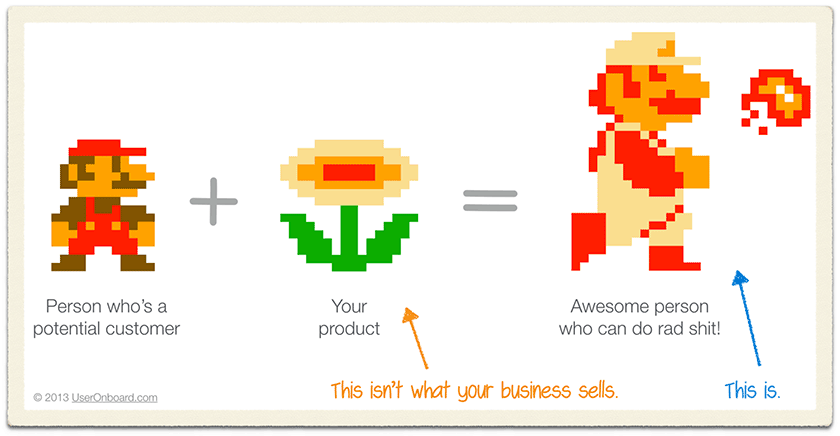There are a handful of things that happen every day in the business world where a logical person would look over and say, “Wait, what just happened?” One of the bigger ones, for me, is this over-focus on products and processes as opposed to people. I’ve never understood this. Yes, your products theoretically make you money, so you need to focus there. But your products are designed, tested, marketed, sold, and vision’ed by your people. Hmm. We respond to customers literally every minute — “Gotta hop on a call with a lead!” — but we evaluate and talk to our own people once or twice a year, because we’re so busy? That appears to be a disconnect — at least IMHO.
Quick interlude before the main point: so many companies worry about product and selling product and moving product and pushing product and product inventory. Those are all things you hear bigwigs meet about. You know the industry where those expressions are the most commonplace? Illegal narcotics. That’s probably not necessarily the model a legit company should be following, although … cartels do make money, for sure.
Here’s an interesting thought, though: what if people — i.e. consumers — aren’t even interested in buying products at all?
I got this idea from here, and this image:
Get it? People aren’t necessarily buying the product (“our customer-focused watch!”) but rather, they’re buying a better version of themselves (“I’m gonna get EverNote on this watch, and dictate things to myself when I’m driving, and it’s going to be great”). You see that subtle difference? Phrased another way:
"Here's what our product can do" and "Here's what you can do with our product" sound similar, but they are completely different approaches.
— Jason Fried (@jasonfried) November 13, 2013
The first line — “Here’s what our product can do” — is sales/marketing speak. It’s about the company selling it and how great their work is. The second line is about you. It’s about how this thing is going to make your life better, easier, more fulfilling, etc.
Look at this in terms of the company everyone loves to breathlessly analyze: Apple. Everyone loves to assign their success to geo-politics and financial metrics, but that’s wrong. They made a simple, easy-to-use suite of things and they let people (other consumers) explain the value those things bring to people’s lives. (“You can do this amazing thing with your phone now!”) It spread like wildfire. They made reams of money. It’s not as complicated as you think.
This is also kind of the whole idea behind “content marketing,” in a way — or, rather, content marketing when it’s done right. Most orgs look at “content marketing” and think “Let’s write a lot of shit and send it out to everyone and we’ll get leads!” Incorrect. Then you won’t make money, you’ll complain about your system of content marketing, you’ll abandon it, and the cycle begins anew. (“I know. Let’s sell ads!”)
The actual idea behind content marketing is this:
- Figure out who your customers are
- Figure out what they need
- Figure out what they look like when things are going great for them
- Deliver that story to them
In a nutshell, telling a story that resonates with a person about “Whoa, this could make things better!” is the essence of marketing. Most people don’t get that.
We know this: people’s happiness — the functional unit of your life, in some ways — is often defined by experiences and not money.
But how do we sell and market stuff? We talk about price, about product, about margin, about whatever the hell else. You’re just describing things, aspects, B-School concepts. An average consumer doesn’t get that.
They don’t want a product. They want a better life experience through something you offer.
Tell that story. Believe me, it works.


Reblogged this on Alexandra.
Reblogged this on Gr8fullsoul.
Totally agree. Product Development is a reverse process that starts with people and leads to the product.
Zunaira Omar
http://www.markitech.ca
Reblogged this on Hot Buttered fun! and commented:
How Don Draper worked, in a nutshell.